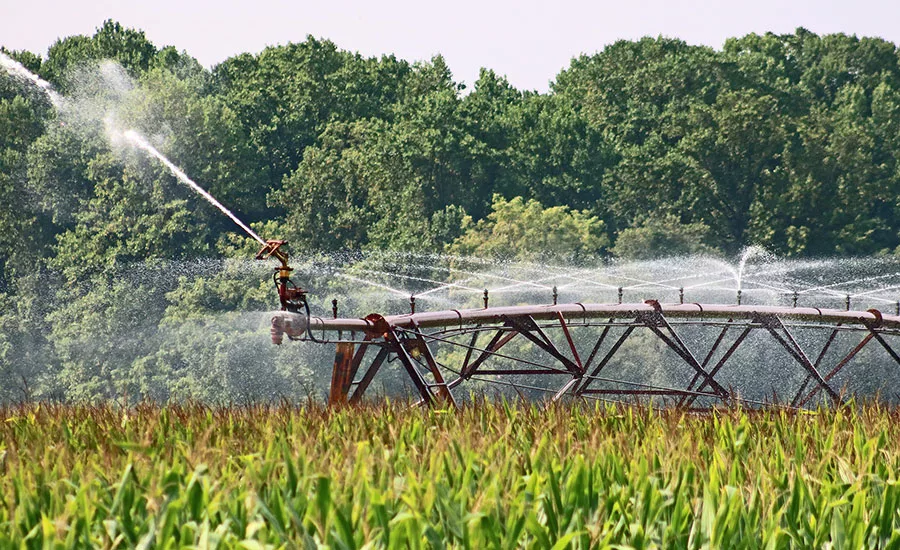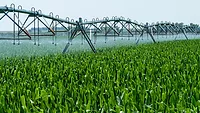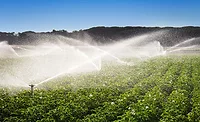FDA Proposes Revision for Produce Safety Rule's Agricultural Water Requirements

On December 2, 2021, the U.S. Food and Drug Administration (FDA) published a proposed rule that would revise part of the Food Safety Modernization Act (FSMA) Produce Safety Rule, specifically subpart E. This would change certain pre-harvest agricultural water requirements for covered produce other than sprouts.
Under the proposal, farms would be required to conduct annual systems-based agricultural water assessments to determine and guide appropriate measures to minimize potential risks associated with pre-harvest agricultural water. The assessment would include various evaluations, such as the water system, agricultural water use practices, crop characteristics, environmental conditions, potential impacts on source water by activities conducted on adjacent and nearby land, and other relevant factors, such as the results of optional testing.
The final Produce Safety Rule, published in 2015 by FDA, established science- and risk-based standards for the safe growing, harvesting, packing, and holding of produce grown for human consumption. During outreach and education efforts on the final rule, FDA heard from a variety of stakeholders that certain pre-harvest microbial quality criteria and testing requirements were too difficult to understand, interpret, and implement.
Thus, FDA extended the compliance dates for the agricultural water requirements for covered produce (other than sprouts) to allow time for the agency to consider how best to address stakeholder concerns while protecting public health. Sprouts are subject to different pre-harvest agricultural water testing requirements that are already in effect and are not impacted by this proposed rule.
The new proposal would replace the pre-harvest microbial water quality criteria and testing rules with requirements for a systems-based pre-harvest agricultural water assessment for covered produce other than sprouts. This approach was developed following hundreds of farm visits and meetings with stakeholders, including an Agricultural Water Summit hosted by the Produce Safety Alliance. In addition, this proposal reflects findings from several recent produce outbreak investigations that offered additional insights into potential routes of contamination.
The requirements described in this proposal are intended to be workable across produce farms of all sizes, both domestic and foreign, recognizing the wide variety of water systems, uses, and practices. They also are designed to be adaptable to future advancements in agricultural water quality science and technology.
If the proposal is finalized, farms covered by the Produce Safety Rule would be required to conduct an assessment of their pre-harvest agricultural water annually. Whenever a significant change occurs, the farms will be required to identify any conditions likely to introduce known or reasonably foreseeable hazards into or onto covered produce or food contact surfaces. Based on their assessments, farms would then determine whether corrective or mitigation measures are needed to reduce the potential for contamination. In light of findings from several recent produce outbreak investigations, the proposal also includes expedited mitigation measures that would be required for specific types of hazards related to certain activities associated with adjacent and nearby lands.
Looking for quick answers on food safety topics?
Try Ask FSM, our new smart AI search tool.
Ask FSM →
FDA intends to work closely with its state partners to implement these changes, if finalized. Through the FDA-State Produce Safety Implementation Cooperative Agreement Program, most states have taken the lead in developing produce safety programs that have included training and educating farms, and conducting inspections. If the proposal is finalized, the agency intends to work closely with state regulators, the National Association of State Departments of Agriculture, educators, and others, including the Produce Safety Alliance, to provide the necessary training to implement these changes to the agricultural water requirements.
FDA also recognizes that the current agricultural water compliance dates are set to begin in January 2022. The agency intends to exercise enforcement discretion for the agricultural water requirements for covered produce (other than sprouts) while proposing to extend the compliance dates for all subpart E provisions applicable to such produce, with the goal of completing the compliance date rulemaking as quickly as possible. More information on the proposed compliance dates will be announced in a forthcoming notice in the Federal Register.
Update, January 6, 2022:
The U.S. Food and Drug Administration (FDA) will be holding two virtual public meetings on the recently released proposed rule “Standards for the Growing, Harvesting, Packing, and Holding of Produce for Human Consumption Relating to Agricultural Water.” The purpose of the public meetings is to discuss the proposed rule, which was issued under the FDA Food Safety Modernization Act. These public meetings are intended to facilitate and support the public's evaluation and commenting process on the proposed rule.
The public meetings will be held according to the schedule below. The times for each meeting have been adjusted to provide persons in different regions of the country an opportunity to comment.
First Virtual Public Meeting
February 14, 2022
11:45 am to 7:45 pm EST
Second Virtual Public Meeting
February 25, 2022
8:45 am to 4:45 pm EST
Registration is required to attend the virtual meetings. Registered participants will receive details on how and when to view the public meetings online.
Register for the February 14 Meeting
Register for the February 25 Meeting







